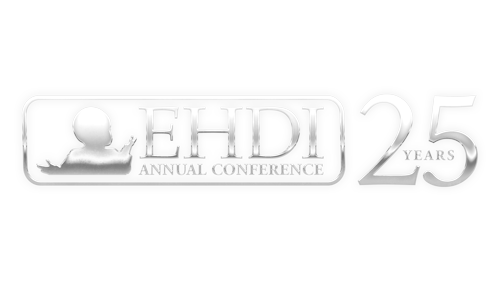2026 Early Hearing Detection & Intervention Conference
March 15-17, 2026 • Jacksonville, FL
3/11/2025 | 2:15 PM - 2:45 PM | Medicaid, EPSDT, and Access to EHDI Services: Overcoming Barriers | 308
Medicaid, EPSDT, and Access to EHDI Services: Overcoming Barriers
Despite the successful initiation of newborn hearing screening across the US, lost to follow-up (LTF) for diagnosis and EHDI services remains high. In 2020, LTF was 30% and 20% for diagnostic and EHDI services, respectively. A review of published studies and discussions on barriers with state EHDI providers and clinicians, indicated that the complexity of the Medicaid as well as reimbursement for services may be the single most important barrier to appropriate care. A September 26, 2024 Critical Guidance issued by the Center for Medicaid and CHIP Services entitled Best Practices for Adhering to Early and Periodic Screening, Diagnostic, and Treatment (EPSDT) Requirements highlighted requirements to improve health outcomes for all eligible children. The LTF rates for deaf and hard of hearing children are negatively impacted by deficiencies in the Medicaid system and, in many states, are being carried out in conflict with ESPDT recommended practices.
Efforts are underway to evaluate the specific barriers associated with Medicaid. Service providers have noted the impact of very low reimbursement, missed appointment rate, delays in authorization for services, and complex enrollment processes. Providers decline to accept Medicaid because of the economic strains on their programs and the time that they need to spend on administrative aspects of the program taking away their ability to provide appropriate critical care. Medicaid in many states has created serious inequities in services for children who rely upon Medicaid versus those with private insurance.
This presentation will provide detail on the specifics of how the Medicaid system contributes as a major barrier to hearing health services for children.
Case studies will demonstrate how several states have addressed the inequities created by Medicaid to improve on the LTF rates as well as the provision of services in a timely manner.
- List factors in Medicaid that impact on access to EHDI services
- Assess barriers to EHDI related to specific State Medicaid Program
- Suggest approaches to utilize in overcoming state specific challenges to EHDI and healthcare inequity
Presentation:
This presentation has not yet been uploaded.
Handouts:
3545975_18230DonnaSorkin.pptx
Transcripts:
CART transcripts are NOT YET available, but will be posted shortly after the conference
Presenters/Authors
Donna Sorkin
(Primary Presenter), American Cochlear Implant Alliance, dsorkin@acialliance.org;
2. Donna Sorkin is the executive director of the American Cochlear Implant Alliance, an organization whose mission is to advance access to the gift of hearing provided by cochlear implantation through research, advocacy and awareness. Prior to joining ACI Alliance, she was vice president for consumer affairs at Cochlear Americas, and also previously served as the executive director of the Hearing Loss Association of America and the AG Bell Association for the Deaf and Hard of Hearing. She experienced progressive hearing loss as an adult and has has been hearing with a cochlear implant for 30 years.
ASHA DISCLOSURE:
Financial -
No relevant financial relationship exists.
Nonfinancial -
No relevant nonfinancial relationship exists.
AAA DISCLOSURE:
Financial -
No relevant financial relationship exists.
Nonfinancial -
No relevant nonfinancial relationship exists.
Nichole Westin
(Co-Presenter,Co-Author), American Cochlear Implant Alliance, nwestin@acialliance.org;
Nichole Westin MA has been the Director of Government Affairs at the ACI Alliance since 2018. She has worked in advocacy since 1998 when she began her career working for the U.S. Senate. Ms. Westin has successfully managed policy campaigns at both the federal and state levels on issues ranging from export sales to payroll taxes to school nutrition. Since joining ACI Alliance, Ms. Westin has worked on a variety of parent support issue and provided one on one support on complicated insurance questions. She also leads the two advocacy networks, including CI CAN which is devoted solely to sharing the experiences of consumers and families. Ms. Westin enjoys using her experience within the federal government and other non-profits to educate people on being effective advocates for their priority policy issues.
ASHA DISCLOSURE:
Financial -
No relevant financial relationship exists.
Nonfinancial -
No relevant nonfinancial relationship exists.
AAA DISCLOSURE:
Financial -
No relevant financial relationship exists.
Nonfinancial -
No relevant nonfinancial relationship exists.
